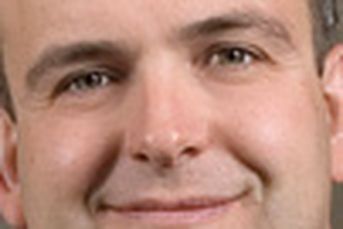Charles Ellis: Don’t let advisers dominate
The tidal wave of rules and regulations being spawned by the misdeeds of Bernard Madoff and the like is casting a pall on the integrity of a broad spectrum of investment advisers, some fear.
The tidal wave of rules and regulations being spawned by the misdeeds of Bernard Madoff and the like is casting a pall on the integrity of a broad spectrum of investment advisers, some fear.
Although the regulations in the long run may restore investor confidence, in the meantime, they are weighing heavily on the retail and small-institution investment advisory model.
And in recent weeks, even large, sophisticated institutional investors are being warned to remain on guard.
“Most advisers are in it for the money and will do whatever they need to keep [themselves] in play,” Charles Ellis, founder of consulting firm Greenwich Associates and former chairman of the investment committee for Yale University’s endowment, told a group of plan sponsors and reporters last month.
Adviser dominance of investment committee meetings — in which they are likely to say nothing useful for fear of offending anyone while promising unrealistic returns from investment managers — is one of many pitfalls that he raised as part of his hypothesis that investment committees do more harm than good.
Mr. Ellis, who retired from Greenwich in 2000 and is an independent investment consultant, devoted much of his analysis to the poor structure of most plan investment committees and especially their failure to define the goals and objectives most appropriate to their institutions.
He pulled few punches in describing how money managers overpromise their capabilities and use selective time frames to exaggerate past performance. “If you’re in charge of the date of origin, anything will look terrific,” Mr. Ellis said.
Investment committee members with unrealistically high expectations, for their part, deserve blame for their gullibility.
“We pretend, [and] they pretend,” Mr. Ellis said at the luncheon, which was sponsored by FTSE Americas Inc., a provider of market indexes and risk management services. “I don’t know of any who don’t want top-quartile managers, but it’s not likely to happen.”
The only good predictor of performance is a stable history at the top or at the bottom, Mr. Ellis said, suggesting that investment committee members, like all investors, pepper money managers pitching their services with lots of informed questions.
“Know going in that they are going to lie to you and will try to deceive you,” he said.
Too many investment committees allow money managers to dominate their meetings, presenting “fascinating” analyses of the economy and interesting personal anecdotes, Mr. Ellis said. These stories have little relevance to the decisions and performance evaluations that committee members should be making, he said.
Despite the stellar performance of Yale’s actively managed portfolio under chief investment officer David Swensen — it returned 16.3% on an annualized basis between June 1998 and June 2008 — Mr. Ellis thinks that both institutional and individual investors should stick with passively managed, indexed portfolios. “It’s cheap, easy, and you don’t have to be afraid of screwing it up,” he said.
They can eventually diversify into some actively managed positions, but only if they are able to articulate in writing the degree of risk that they can tolerate and the circumstances that would shift them back to an all-passive position, Mr. Ellis said.
In an interview after his presentation, he lamented that few investment committees require managers to provide material on their performance ahead of time, which allows managers to dominate the conversation.
Although Mr. Ellis’ remarks about the investor-adviser relationship apply to the retail as well as the institutional market, he said that he still has great admiration for many advisers.
“There are experienced people in all parts of the financial advisory field who are trying to do a really good job and who find themselves in real demand,” he said.
Mr. Ellis also offered advice to those who want a fair hearing before investment committees. “First, steep yourself in modesty, and don’t present yourself as being able to do stuff beyond your capacity,” he said.
Advisers also should be open and available to their top clients, Mr. Ellis said.
The good news for smart young managers, he said, is that wise investment committees are receptive to them if they have unique strategies and can articulate ways that they can hedge or otherwise protect their bold moves.
The bad news is that aside from gurus such as Mr. Swensen, few investors are able to identify such wunderkind managers, Mr. Ellis said.
E-mail Jed Horowitz at [email protected].
Learn more about reprints and licensing for this article.




